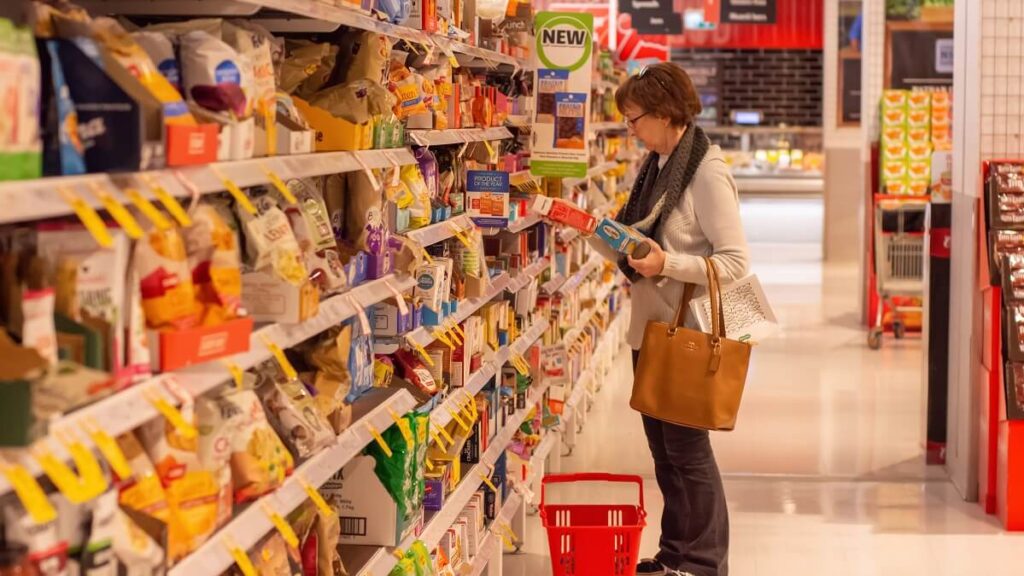Your supermarket may be an inexpensive source of ‘fresh’ produce and other goods, but there are good arguments for leaving some commonly purchased items out of your trolley.
If we boil it down, supermarkets have over-packaged items, ‘fresh’ produce that may have been frozen months ago and some may not have the best track records when it comes to hygiene, either by their own doing or the fact that hundreds of customers breathe on and touch the produce daily.
But it’s not just these issues that should prevent purchases. Some shelf and fridge stock is easily made or prepared at home at a fraction of the cost of the store-bought versions.
Let’s cut to the chase and check out the items you should avoid.
1. Shredded cheese
If you compare the cost of a block of cheese and its shredded counterpart, the block will often be half the price. Also, some companies add filler and other unhealthy ingredients to the shredded cheese. If you have a grater, buy the block and shred it yourself. If you don’t have a grater, buy one. It will pay for itself in two blocks of cheese.
2. Anything unpackaged
Your shopping trolley is, to put it plainly, a petri dish of bacteria and germs – even after a quick wipedown with sanitiser. Research suggests that around 72 per cent of US trolleys contain traces of faeces, vomit and other filthy microbes. If you must use a trolley, wipe it down yourself with antibacterial wipes or take your own fabric bags and put your unwrapped products inside. Otherwise, make sure you wash any unpackaged goods when you get home.
3. Pre-sliced, store-packaged meats
Deli meats that have been sliced and packaged in-house and are out in the fridge aisle are quite often the sliced goods that haven’t sold from the deli counter. Two factors that should deter your purchase are the store-designated use-by date placed on the package (it can be arbitrary) and that the meats have often been handled and possibly contaminated before being put into packages. If you want sliced meat, go to the deli and ask them to slice it in front of you. All good delis should do this anyway.
4. Pre-made deli salads and soups
These are often made from the salad produce that is close to going off. You’ll often find they include pungent products such as feta cheese, olives and dressings that are there to mask the smell of dying spinach leaves and questionable vegies. And they’ll charge you a premium price for it, too. Best to buy your own salad and soup ingredients and make them yourself.
5. Salad dressing
While we’re on salads, how about leaving the salad dressing on the shelf? Most of these bottled dressings contains a bunch of ingredients that are unhealthy and unnecessary. You can make a salad dressing with olive oil, some form of vinegar, a pinch of sugar and a couple of herbs. It’s much healthier, will cost you next to nothing and you can customise it to suit your taste using jams, chutneys and other sauces.
6. Dips
Same goes for dips. Most dips can be made with a few fresh ingredients. You’ll also save heaps making them at home. Need some inspiration? Here are a few that are simple to prepare, most with ingredients you may already have in your kitchen:
7. Out-of-season fruit and veg
If it’s out of season but on the shelves, it’s been frozen for weeks or months. Or it has travelled from the other side of the world in cold storage and has lost nutrients and flavour. Stick to in-season produce and, when possible, buy Australian grown fruits and veg – it supports our farmers and is much better for you.
8. Products placed near checkouts
Any products placed near the checkout are usually items that have been around for weeks or months in the aisles and haven’t sold. The store is just trying to shift old goods, many bordering on being out of date. Sometimes you’ll find a bargain, but mostly you should steer clear of these items.
9. Pre-packaged bean sprouts
Bean sprouts like to grow in warm, humid conditions. So too, does bacteria. If you must buy bean sprouts, look for the loose ones and stay away from pre-packaged product.
Can you recommend any other products that are best bought elsewhere? Share your thoughts in the comments section below.
Also read: How long can you keep fresh food?

